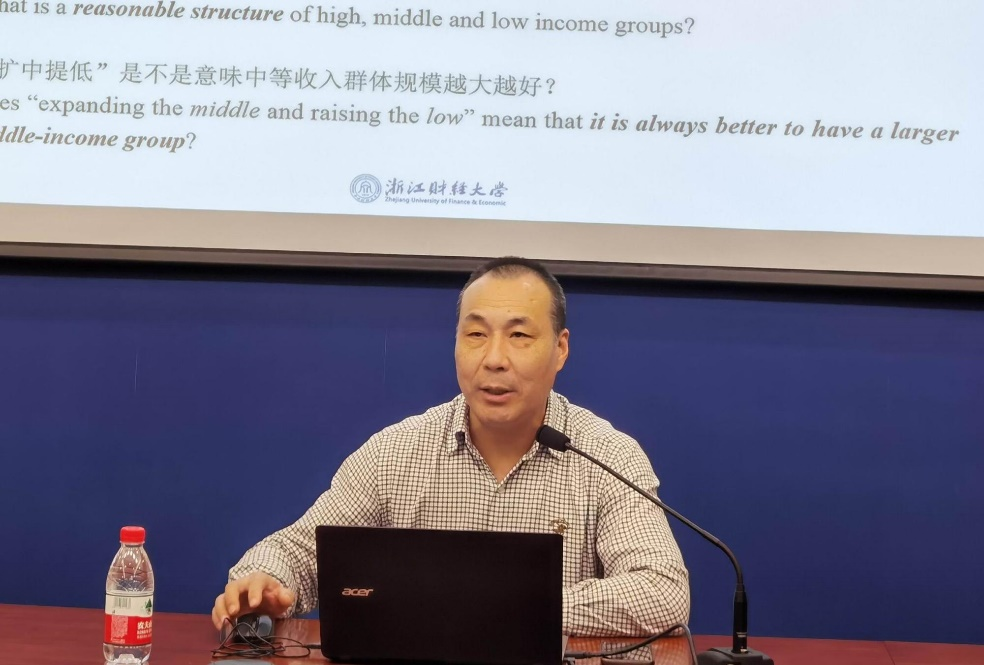“Measuring Common Prosperity and Inclusion: Challenges and Innovative Methods,” the international seminar hosted by the China Regional Center of the United Nations Global Platform for Big Data was held recently in Hangzhou. Li Jinchang, Secretary of the Party Committee and Professor of ZUFE, was invited to attend the meeting and gave a special report titled “Discussion on the Measurement of the Size of Middle-income Groups.”

Professor Li Jinchang conducted an in-depth analysis on issues such as “what is a middle-income group,” “how to measure the size of the middle-income group,” “how is the structure of high, medium, and low income groups reasonable,” and “does ‘increasing the size of middle-income groups and raising the incomes of low-income groups’ mean that a bigger middle-income group would be better.” From the perspective of theoretical models and international experience, he gave the general proportion of high, middle, and low-income groups.
The China Regional Center of the UN Global Platform for Big Data is jointly proposed and initiated by the United Nations Department of Economic and Social Affairs, the National Bureau of Statistics of China and the People’s Government of Zhejiang Province. The main goal of the center is to promote the application of big data and data science in official statistics and sustainable development goal indicator projects, share knowledge on newly developed research methods, algorithms, and tools, and mainly provide training on big data application and data science for the official statistical community in the Asia Pacific region.
